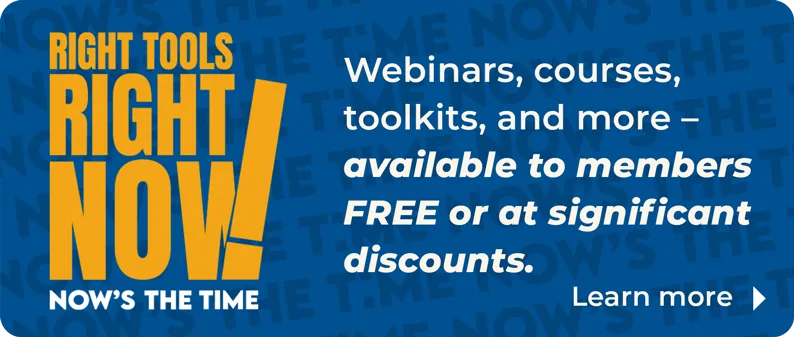Also see: Supporting Forms, Materials, and Information
How the Buyer-Seller Mediation Program Works
After reviewing these materials, associations voluntarily decide whether they will offer mediation to consumers. Mediation can be initiated through the use of a mediation clause in the association's standard forms. The clause can be included in the body of the sale contract or as an addendum to the contract (see Appendices A and B). Similar clauses can be added to listing agreements and to buyer representation agreements.
When signing a contract or addendum containing a mediation clause, the parties to the transaction commit to submit any dispute that arises from the transaction to mediation. Where parties do not commit to mediation in advance of a dispute developing, an agreement to mediate can be entered into by the parties after a dispute arises (see Appendix C). In either situation, while the agreement to submit disputes to mediation is binding when signed, the parties retain their right to pursue other legal remedies if mediation is unsuccessful. Parties are not bound to agreements reached during the mediation conference unless they sign a written mediation settlement agreement. Once parties have signed a written mediation settlement agreement, they are legally bound by its terms and cannot subsequently arbitrate or litigate the now-resolved dispute.
With few exceptions, almost any real estate dispute can be mediated under the program. Exceptions include disputes involving complex legal issues, alleged criminal conduct, alleged violations of state license laws or regulations, and alleged violations of the Code of Ethics and Standards of Practice of the National Association of REALTORS®.
The mediation component includes forms, materials, and information associations need to implement to conduct buyer-seller mediation.
Considerations
Prior to implementing a mediation program for buyer-seller disputes, associations should be certain that the association's leadership, staff, and members know and understand the level of commitment and resources required to initiate and administer an effective mediation.
- Association leadership, key staff and legal counsel should familiarize themselves with these Guidelines.
- Discuss the Guidelines with leadership, staff, and appropriate committees and determine whether the association has the resources needed to initiate, promote, and administer the program (i.e., costs for implementing, promoting, and administering the program will vary depending on association size and other factors).
- Identify and confirm the availability of qualified mediators and/or mediation providers in the area.
- Provide information about the association’s Buyer-Seller Mediation initiative to members, obtain and consider their feedback, and respond to concerns and questions members have about the program.
- Make a formal presentation to the association’s board of directors, including implementation recommendation(s) (e.g., that XYZ committee have oversight of program activities, that an implementation plan be drafted and submitted to appropriate individuals or group(s) by a specific date, etc.).
- Follow the recommended procedures for implementing, promoting, and administering the mediation program.
- Provide informational brochures, forms, and training materials to REALTOR® firms.
- Have adequate staff and volunteer support sufficient to implement and conduct the program.
- Consult with legal counsel to ensure compliance with state law.
- Actively promote and encourage use of the program by REALTORS®, sellers, and buyers.
- Monitor program performance.
Mediation Procedures
Agreement of Parties
These procedures shall apply when the parties have agreed in writing to mediation under the program. By mutual written agreement of all parties to a dispute, any specific provision of these procedures may be modified.
Initiation of Mediation
Any party may initiate mediation by completing, signing and mailing to the association, mediation provider if already known, and to all other parties, a Request to Initiate Mediation Transmittal Form (see Appendix D). A request for mediation must include the following information, to the extent known or readily available.
- A fully executed copy of the agreement containing the mediation clause or copy of such other written agreement invoking mediation under the program.
- In the absence of a contract clause or other written agreement to mediate, a written request by any party seeking to have the association attempt to persuade one or more parties to submit an existing dispute or claim to mediation under the program.
- The names, mailing addresses, e-mail addresses, and telephone numbers of all parties.
- The nature of the claim and amount in dispute (i.e., brief statement of the facts that give rise to the claim, the damages, or relief sought).
Selection of Mediator
Not later than twenty (20) days after receipt of the Request to Initiate Mediation Transmittal Form, the association will appoint a qualified mediator if one has not been established in advance.
No person shall serve as a mediator in any dispute if that person has any financial or personal interest in the results of the mediation unless, after full disclosure, the parties give their written consent.
Time and Place of Mediation Conference
Within ten (10) days of appointment, the mediator or association staff will notify the parties of the date, time, and place of the mediation conference. The mediator will use reasonable efforts to set a date, time, and location acceptable to all parties.
Conduct of Mediation Conferences
At the mediation conference, the parties will be expected to produce all information reasonably necessary to understand the issue(s) presented. Such information will usually include relevant written materials and a description of any witness(es) and what each could testify to. The mediator may ask the parties for written materials or information in advance of the mediation conference.
At the mediation conference, the mediator will conduct an orderly settlement negotiation. Parties at the mediation conference must have authority to enter into a binding written agreement settling the dispute. The mediator will be impartial in such proceedings and has no authority to compel the parties to agree to a proposed settlement.
Representation by Counsel
Participation of legal counsel is generally discouraged. However, parties may be represented at the conference by counsel. Any party who intends to be represented by counsel must notify the mediator and all other parties that they will be represented by counsel at least ten (10) days in advance of the conference.
Confidentiality
No aspect of the mediation shall be relied upon or introduced as evidence in any arbitration, judicial or other proceeding, including but not limited to:
- Views expressed or suggestions made by a party with respect to a possible settlement of the dispute
- Admissions made in the course of the mediation
- Proposals made or views expressed by the mediator or the response of any party thereto.
No privilege shall be affected by disclosures made in the course of mediation.
Disclosure of any records, reports, or other documents received by or prepared by the mediator cannot be compelled.
The mediator cannot be compelled to disclose information or testify in any proceeding about information disclosed or representations made in the course of the mediation or communication to the mediator in confidence.
Mediated Settlement
The mediated settlement must be reduced to writing by the parties, dated, and signed by all parties either at the mediation conference or no later than ten (10) days after the conclusion of the mediation conference (see Appendix E).
Judicial Proceedings and Immunity
Neither the mediator nor the association shall be deemed "necessary parties" in any judicial proceedings relating to mediation under this program. Neither the mediator nor the association shall be liable to any party for any act, error, or omission in connection with any service rendered under the program.
Mediation Fees
Mediation fees shall be as established in the association’s fee schedule.
Timing of Claims
The time limitation by which parties must bring claims pursuant to this program may be governed by state law. Legal counsel should be consulted regarding applicable filing deadlines.
NAR’s Model of Mediation
Except for any conflict with any requirement of this program, mediation proceedings should be guided by NAR’s Model of Mediation (available on nar.realtor at https://www.nar.realtor/policy/mediation).
NAR Mediator/Mediation Resources
These materials are supplemented by the information, materials, and resources available on the Law and Policy site at nar.realtor.
Options for Providing Mediation Services and Implementing a Mediation Program
After the board of directors has authorized implementation of a mediation program, the association executive and/or appropriate committee should draft a step-by-step plan for implementing the program.
There are several options for providing mediation services. The association can use qualified REALTORS® as mediators, may negotiate an exclusive agreement with a single provider or may choose to use several mediation providers.
Exclusive Service Agreement With a Single Mediation Provider
The association enters into a written contract with a single mediation provider (individual or group) meeting the association’s criteria and needs. Under this arrangement, members will provide buyers and sellers with the name and contact information of the association’s mediation provider.
Multiple Providers
The association identifies and qualifies two or more mediation providers capable of satisfying the association’s criteria and needs. Under this arrangement, the association will provide member firms, for dissemination to their clients and customers, the names and contact information of all mediation providers selected by the association to participate in the mediation program. Buyers and sellers choose a mediator from among the providers listed.
Following are some of the activities which should be covered in any implementation plan.
- Revise standard listing agreement, buyer representation agreement, and sales contract to include mediation clauses. Encourage members to add mediation clauses to their company contracts or use an addendum until the association's standard contracts are reprinted. [Note: If members use the state association's standard forms, encourage the state association to revise those contracts to include mediation clauses.]
- Identify/select mediators.
- Prepare a list of approved mediators.
- Prepare reproduction proof for "personalized" buyer-seller informational brochures (see Appendices F and G). Include association's name, mailing address, email address, and telephone number.
- Reproduce sufficient numbers of mediation brochures, mediation forms, and broker/salesperson training materials to accommodate:
- Designated REALTOR® / Branch Office Manager DRS Packet: Direct mailing and orientation handouts (see Appendix H).
- Buyer-Seller DRS Packet. To be provided to buyers and sellers who contact the association or participating firms for information on how to initiate mediation under the program. (see Appendix I)
- DRS Mediation Orientation. Include as part of an orientation kit; additional materials may be provided at the option of the association/broker (see Appendix J).
- Media Kits. To be provided to news media (see Appendix K).
- Member Promotion. Include the “personalized” Buyer-Seller Mediation brochures as an insert in association newsletter and/or handout at association meeting(s).
- Plan and schedule an orientation/training program for principal brokers and branch office managers to familiarize them with the mediation program and its use by buyers, sellers, and real estate brokers/salespersons.
- Prepare media release and media kits for dissemination to news media. Identify opportunities for using news media to inform public about the mediation program.
- Identify and schedule promotional activities to inform members about mediation and to encourage their acceptance and use of mediation.
- Update new member orientation program to include information about mediation.
Where to Look for Mediators
In addition to REALTORS® and others trained as mediators by the National Association and many of the state associations, the following are potential sources of individual mediators and mediation service providers:
REALTOR.org: Professional Standards Training/Mediation Resources Database
- State and local bar associations
- State and local chambers of commerce
- Better Business Bureau
- Clerk of court's office
- State Attorney General's office
- Colleges and universities
- Affiliate members (attorneys, lenders, title companies, etc.)
- Newspaper and trade journal advertising
- Community dispute resolution centers
- Classified telephone directories
Minimum Criteria for Mediators
Associations can ensure the success of their mediation program by establishing qualification criteria for individuals who wish to serve as mediators. Objective criteria provide the basis for selection of individuals with the knowledge, skills, and expertise needed to mediate disputes under the program.
Establishing Qualification Criteria
NAR recommends that the association appoint a committee to develop mediator qualification criteria. The committee's recommendations should then be presented to, and approved by, the board of directors. Consideration should be given to special or unique needs of the association.
Recommended Minimum Qualification Criteria
To help associations qualify and select capable mediators, NAR developed the following minimum qualification criteria. NAR recommends that associations consider adopting these criteria as minimum standards for qualifying mediators.
To serve as a mediator, individuals should meet the following qualifications.
Mediators can be:
- REALTORS® with tact, diplomacy, and a sense of equity who have a familiarity with state real estate rules and practice, five years of real estate experience, and who have completed a recognized course of instruction on mediation; or
- Professional mediators with recognized mediation credentials who are members in good standing with an established public or private dispute resolution organization and who possesses a fundamental knowledge of real estate satisfactory to the association; or
- Real estate professionals including title officers, real estate attorneys, appraisers, association staff, etc., who are trained in mediation by and possess real estate satisfactory to the association.
Prospective mediators must agree to follow the program’s procedures and requirements.
Prospective mediators must be willing to provide mediation services on terms and for fees acceptable to the association.
Potential mediators’ experience in mediating cases involving the following may help demonstrate their ability to conduct successful mediations under the program.
- Mediation involving other professionals (e.g., architects, engineers, lawyers, accountants, building contractors, homebuilders, etc.),
- Mediation involving contracts for professional services
- Mediation of disputes involving more than two parties
Associations should verify the credentials and qualifications of individuals and the companies the individuals are affiliated with prior to the individuals being considered as potential mediators. The association should ask for and check references.
Preliminary Screening of Mediators
After the association has identified potential mediation providers and established objective criteria for individuals who may serve as mediators, the next step is to pre-qualify mediators. The association should contact each potential provider to establish their:
- Interest in the mediation program
- Ability to provide mediation services that meet program needs and requirements
- Current fees
- Credentials and qualifications
Qualification and Selection
Determine how individual mediators and mediation providers will be screened and selected. NAR recommends that a working group of members make recommendations for the selection of mediators. The Association Executive or other appropriate staff and association legal counsel should also participate.
Request for Proposal
When the association notifies potential mediation providers of the decision to implement the mediation program, the association should send a letter with the Request for Mediator Proposal (see Appendix L) to each potential provider requesting them to submit a written proposal that confirms:
- Provider's interest in participating in the mediation program
- Provider's ability to serve the association's jurisdiction
- Provider's fee schedule and any terms or conditions that apply to fees (e.g., payment terms, time periods during which fees will be in effect, fee increases and related notices, etc.)
- Provider's willingness and ability to perform mediation activities and services, etc.
- Provider’s education, training, experience, references and other qualifications demonstrating provider's ability to conduct the activities required under the mediation program and to conduct successful mediation conferences
- Provider’s ability to satisfy all criteria the association has established
- Compliance of the program with applicable state law(s).
The association's letter should include the date by which the association must receive the written proposal and a brief summary of the association's timetable and procedures for selecting mediators to participate in the program.
Interviews
Once all proposals have been received and reviewed, interviews can be conducted.
Selection and Approval by Board of Directors
The working group's recommendations should be presented to the appropriate committees for final recommendation to the board of directors. Following action by the directors, the association should thank all providers for submitting proposals and inform them of their acceptance or rejection.
Keep Mediation Provider(s) Informed and Involved
Mediators and mediation providers can be valuable resources during initial implementation of the program. Keep your mediation providers informed of the association's progress and any challenges that the association may be experiencing.








